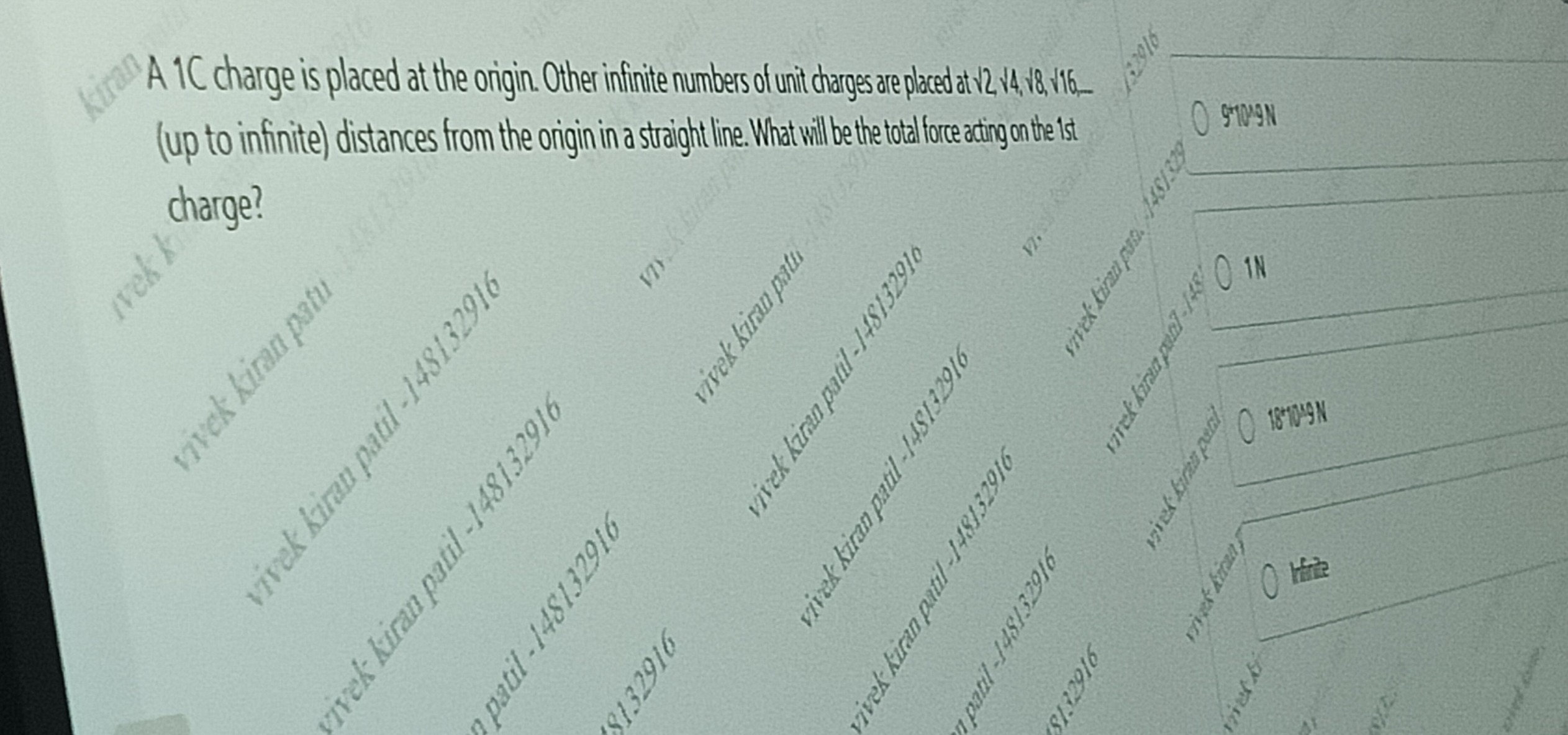Question
Question: A 1C charge is placed at the origin. Other infinite numbers of unit charges are placed at $\sqrt{2}$...
A 1C charge is placed at the origin. Other infinite numbers of unit charges are placed at 2, 4, 8, 16... (up to infinite) distances from the origin in a straight line. What will be the total force acting on the 1st charge?

9∗109N
1 N
18∗109N
Infinite
9*10^9 N
Solution
The problem asks for the total force acting on a 1C charge placed at the origin due to an infinite number of unit charges (1C each) placed at specific distances along a straight line.
-
Identify the charges and constant:
- Charge at the origin, q0=1 C.
- Other charges, q=1 C.
- Coulomb's constant, k=4πϵ01=9×109 N m2/C2.
-
Identify the distances: The charges are placed at distances rn from the origin given by: r1=2 r2=4=2 r3=8=22 r4=16=4 ... and so on. This sequence of distances can be written as rn=(2)n.
-
Apply Coulomb's Law and sum the forces: Since all charges are positive and are placed along a straight line (implying they are all on one side of the origin, so forces add up), the total force (Ftotal) on the charge at the origin will be the sum of the individual forces exerted by each charge. The force exerted by the nth charge on the charge at the origin is given by Coulomb's Law: Fn=krn2q0q
Substitute q0=1 C and q=1 C: Fn=krn2(1)(1)=rn2k
Now, substitute rn=(2)n: rn2=((2)n)2=(21/2)n)2=2n
So, Fn=2nk.
The total force is the sum of these individual forces: Ftotal=∑n=1∞Fn=∑n=1∞2nk Ftotal=k(211+221+231+241+…) Ftotal=k(21+41+81+161+…)
-
Sum the infinite geometric series: The expression in the parenthesis is an infinite geometric series with: First term (a) = 21 Common ratio (r) = 1/21/4=21
Since ∣r∣<1 (i.e., ∣1/2∣<1), the series converges to a sum S=1−ra. S=1−1/21/2=1/21/2=1
-
Calculate the total force: Ftotal=k×S=(9×109 N m2/C2)×1 Ftotal=9×109 N
